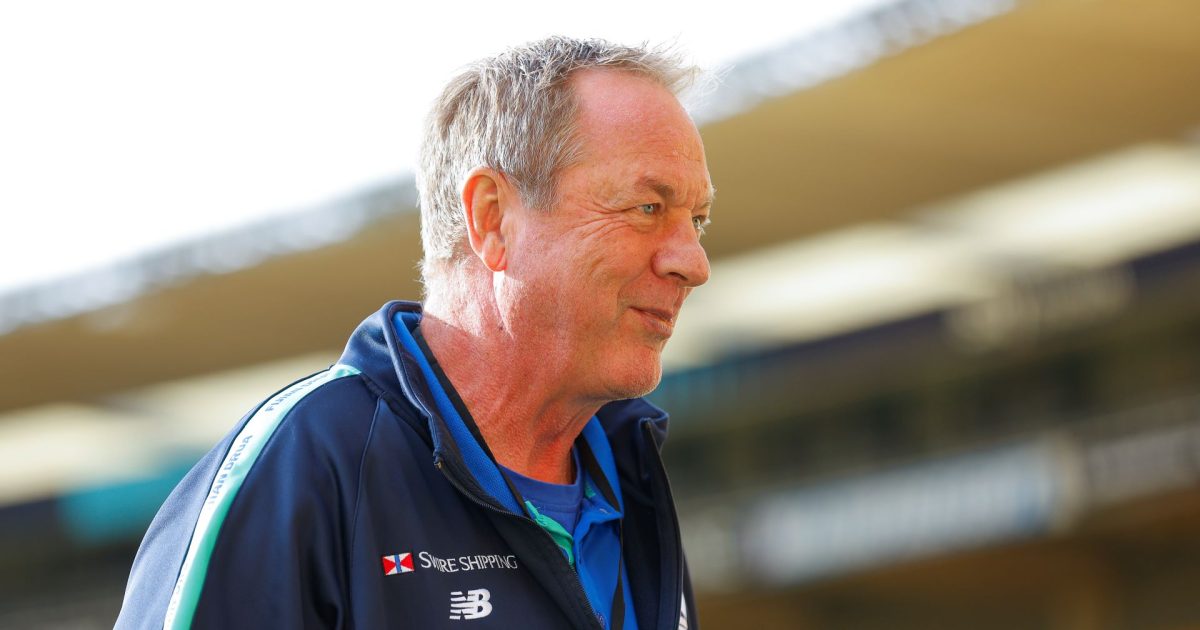Flying Fijians unfazed by ‘external’ pressure before Pacific Nations Cup

While Fiji have set their sights on taking out the Pacific Nations Cup over the next month or so, the most successful team in the competition’s history aren’t feeling the heat from “external sources” according to coach Mick Byrne.
The Flying Fijians claimed the PNC crown for the first time in 2013 after winning three of four matches during their historic run to glory. Canada claimed a thrilling 20-18 win in Ottawa during the third match week in what was the only blip on Fiji’s record that year.
But that famous trophy triumph proved to be the catalyst for future successes with Fiji winning the tournament several times. The Fijians claimed the title four times back-to-back from 2015 to 2018, and they went unbeaten in last year’s unofficial PNC.
Following the team’s famous ascent to the Rugby World Cup quarterfinals last October, Fiji are considered one of the favourites to take out the title in this year’s new-look competition from August 23 to September 21.
New head coach Mick Byrne, who finished with the Fijian Drua after this year’s Super Rugby Pacific season, said “it’s massively exciting” to be preparing for his first international tournament with Fiji. Byrne has named a strong 30-man squad for the competition.
In a press conference on Thursday, Byrne agreed while “there’s always pressure” on international rugby teams to perform, the Flying Fijians are driven by the high standards they have set themselves within the group.
“Every day you turn up to work, there’s pressure. The key thing here is to focus in on your performance. We want to win the PNC… we want to bring it back to Fiji,” Byrne said.
“But the pressure is not from external sources, it’s from your own internal sources about getting the job done and preparing yourself well. Pressure of performance is more important internally; making sure that when we get up, training is good, the players are training well.
“Pressure is on making sure our program allows our players to be the best they can be. That’s the pressure I feel. I think the game, we know if we get our game right and the boys are going to be very physical, the results will take care based on our performance.”
Hooker Tevita Ikanivere will captain Fiji when they get their PNC campaign underway next weekend against rivals Samoa. The Fijians will also take on Tonga in Pool A before travelling to Japan for the next phase of the competition.
If Fiji qualify in either first or second in the pool, they will face either Eddie Jones’ Japan, Canada or the USA in one of two semi-finals. The bottom-ranked sides from the two pools will go head-to-head in a fifth-sixth play-off fixture.
There will then be a winner-takes-all Grand Final which will bring an end to the five-week competition. Before Fiji begin their PNC campaign, coach Byrne has explained how the team’s schedule has “worked in our favour.”
“It gives us a chance to recover that week and get some good, solid training and a little bit more work into our players before we have to travel to Tonga.
“It’s pretty hectic after that. We travel back from Tonga and then we fly to Japan and depending on where we are and how things have gone for us will depend on what happens.
“But there’s a game in Tokyo and a game in Osaka. We’ll be flying in, travelling down to Osaka on the fast train, the bullet train, so there’ll be a little bit of travel.
“The big thing is planning our weeks which we’ve done, all the coaches and staff have been together and planned out our travel, our recovery days, etcetera. It’s really important that we manage our players well so that the travel has the least impact on our players and we can be firing 100 per cent come game time.
“It actually isn’t too bad for us because after the first game, we get a bit of recovery time and then we get a chance to prepare for Tonga. Then it gets a bit hectic after that but we’ve got plenty of time to plan and we’ve done that – we’ve got some good plans in place.”



















































